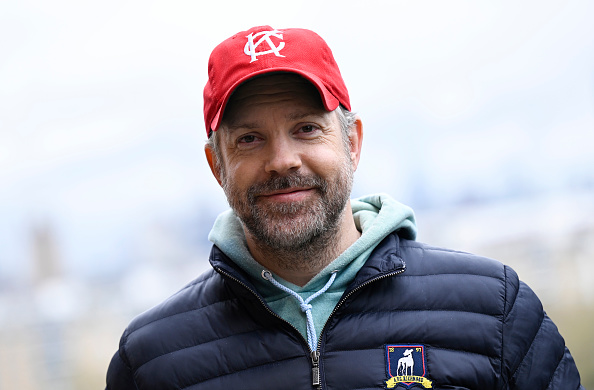The Apple TV show “Ted Lasso,” which turns on the premise of a US football coach being hired to coach a UK soccer (the real football) team without knowing a thing about the sport, has created a burgeoning cottage industry in the world of leadership advice.

Since the series finale of the show last month, a lot of ink and pixels have been used to reflect on “The Lasso Way” of leading, expounding on everything from how he created community, embodied servant leadership and made his team members feel valued. Even if you’ve never seen the show (who are you??), simply reading some of the lessons gleaned from Jason Sudeikis’ character can be enlightening.
I hope you’ll endure another one.
The cause of Lasso’s success
Many of the articles I’ve read on Lasso’s leadership principles turn on the effects of his leadership style – the team cohesion, the winning over of a recalcitrant boss or the reluctance to lash out of those who hurt him, whether it’s his ex-wife or Nate Shelley, the kitman (locker room attendant) turned assistant coach turned rival club head coach. None that I have seen have explored the cause of Lasso’s success, which I believe can be summed up in one word: devotion.
Lasso isn’t just interested in the success of his team in terms of wins or league position. Certainly, he’s devoted to the big picture of trying to come out on the top of their league — but he’s also devoted to the success of every single person he meets, whether they are on his staff, fans at the pub or the doubters who consistently address him by a pejorative for most of his first season.
No matter how much doubt, abuse and hostility is directed at him from fans and players alike, Lasso never wavers from his tactics for one reason — he is devoted to seeing — and bringing out — the best in everyone. Even in those moments when others doubted him, tried to undercut his authority or mocked him, Lasso remains positive and devoted to his mission.
His devotion was displayed in many ways as he worked to help egotistical star Jamie Tartt become a team player and create a culture of prizing the team over a single superstar’s efforts or success. Lasso was also devoted to helping former player turned coach, Roy Kent, find his footing after retirement as a player and embrace a fuller life for himself.
Devotion is never misplaced
Not everyone responded well to that devotion, though, as was the case with Nate Shelley, who lashed out at Lasso and went on to lead a rival club. Lasso’s devotion remained steady, though, as he declined to publicly criticize Shelley and instead used self-deprecating humor during a press conference to make the point that everyone has their weaknesses.
In the end, Lasso’s devotion pays off. Shelley returns as an “assistant kitman,” just happy to be back with the team he loves, and while the team placed second in the standings at the end of the season, they remained proud of their performance after coming back from relegation.
The proof of the effectiveness of Lasso’s devotion comes in the last locker room scene where Lasso tells the team, “I’ve loved getting to know each and every single one of you. Learning all about the men you were and getting a front-row seat to the men you all have become.”
After the speech, each player pulls out a piece of the yellow “Believe” sign Lasso put up when he arrived, but which had been destroyed by an angry Shelley. Each team member returned Lasso’s devotion to them by treasuring a piece of the sign. At the end, they put all their single scraps together to recreate the sign, showing that the team finally understood that their sum is greater than all their individual parts.
Showing devotion as a leader means that you love getting to know about the person who is before you, whether they outrank you or whether they are part of the office cleaning crew. You have a front-row seat to see the kind of person — both personally and professionally — that they will become. If, as a leader, you can help others see their potential and are devoted to their growth, which will inevitably be messy and non-linear, you will experience a Lasso-like pride of success.
As Lasso says: “If you care about someone, and you got a little love in your heart, there ain’t nothing you can’t get through together.”
Candace Chellew is the senior editor of business services for Smartbrief and has spent more than 30 years as a journalist, including six years as a writer, editor and radio news anchor with CNN.
Opinions expressed by SmartBrief contributors are their own.
_________________________
Subscribe to SmartBrief’s FREE email newsletter on leadership. It’s among SmartBrief’s more than 250 industry-focused newsletters.
